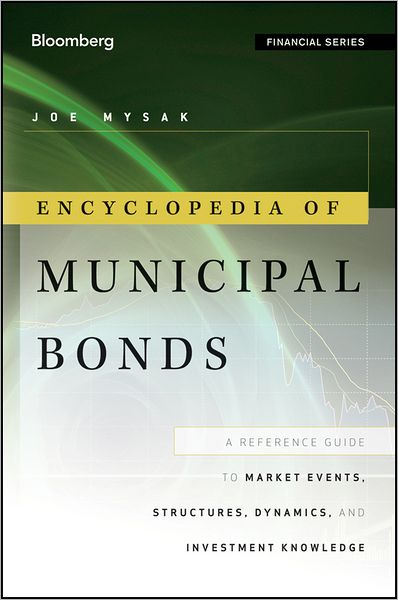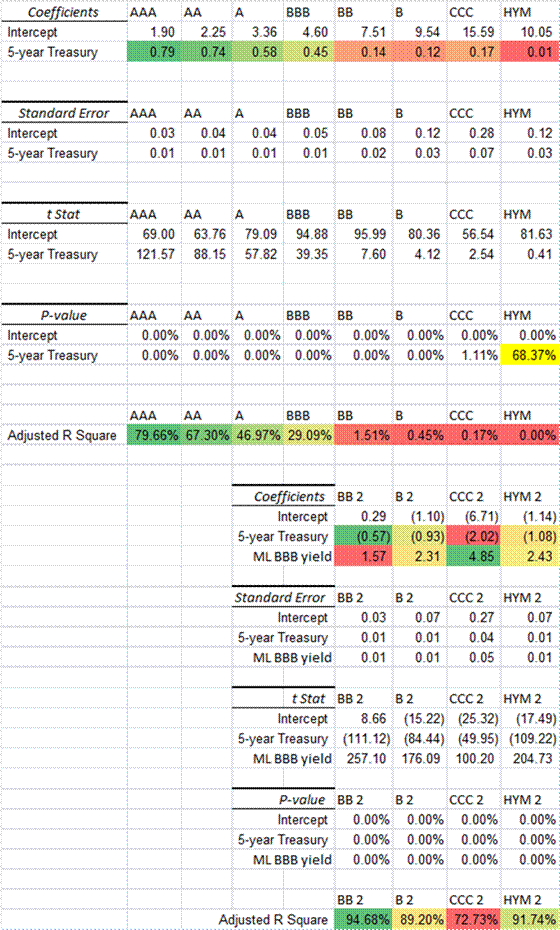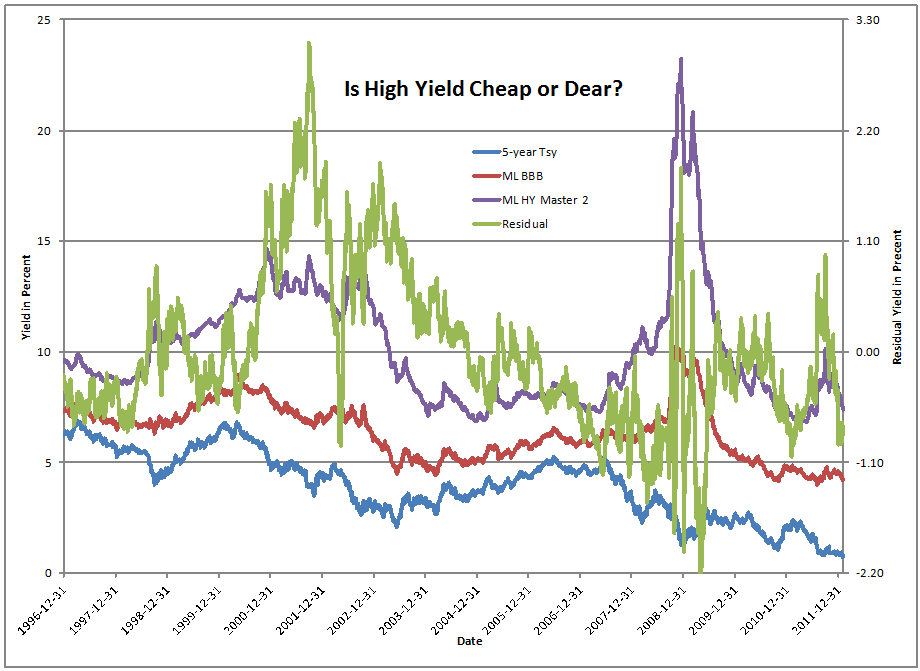Here are two articles to read on risk parity:
Pro: Pick Your Poison
Con: The Hidden Risks of Risk Parity Portfolios
I’m on the “con” side of this argument, because I am a risk manager, and have traded a large portfolio of complex bonds.? For additional support consider my article Risks, Not Risk.? Or read the second half of my article, “The Education of a Corporate Bond Manager, Part X.” There is no generic risk in the markets.? There are many risks.? Interest rate risk and credit risk are different topics.?? There are bonds that have interest rate risk but not credit risk — long Treasuries.? There are bonds that have credit risk but not interest rate risk — corporate floating rate notes, my favorite example being floating rate bank trust preferred securities.
It is not raw price volatility that drives investment results as much as the underlying drivers of the volatility.? For fixed income, I described those in the two articles linked in the last paragraph.? During non-credit-stressed times, a bank’s 30-year floating rate trust preferred security is roughly as volatile as a five-year noncallable bond that it issues.? But during times of credit stress, the first security becomes volatile, whereas the second one doesn’t.? The first moves in line with 30-year swap yields, LIBOR, and long junior bank spreads.? The second moves in line with 5-year Treasury yields, and short senior bank spreads.? The underlying drivers have little in common, and when things are calm, their volatilities are similar, because the drivers aren’t moving.? But when the drivers move, which in this case is one correlated driver, credit stress (30-year swap & junior bank spreads go a lot higher), the volatilities are very different, the first one being high and the second one low.
Thus equating volatilities across a bunch of asset subclasses, investing less in the volatile, and levering up the non-volatile, is hard to do.? History embeds all the curiosities of the study period, and calls them normal, and that past is prologue.
From the Pick Your Poison article above, what I think is the (lose) money quote:
Gundlach insists most money managers misunderstand junk bonds, comparing them to 5-year Treasurys to determine how rich their yields are, when the correct comparison should be to 30-year Treasurys.
How can Gundlach compare junk bonds, which do better when the economy heats up, with long-term Treasurys, which get killed when the economy revs up and the Fed raises interest rates?
That?s irrelevant, he responds. The thing to look at is volatility, because that tells you the odds you will have to sell at a loss when you need to raise cash in an emergency. On that basis, junk bonds that were trading at a seemingly reasonable spread of 5 percentage points, or 500 basis points, to 5-year Treasurys in mid-2011 were actually trading at an intolerably low 250-basis-point spread to the proper bond. (By then DoubleLine had cut its junk bond allocation from 10% to 1%.) Sure enough, junk fell 12% as the year went on, and the spread to 30-year Treasurys has doubled since mid-2011.
?It?s called risk parity,? Gundlach says. ?There?s only two investors who seem to understand it?me and Ray Dalio,? the highly successful manager of $122 billion (assets) Bridgewater Associates.
Personally, I don’t think Gundlach makes his money that way for his funds, but in case he does, how should a good bond manager view junk bonds?
First, ignore Treasuries — they aren’t relevant to the price performance of junk bonds.? I’ve run the regression of Treasuries vs junk bond index yields many times.? It’s barely significant for BBs, and insignificant thereafter.? Second, look at stock market indexes of industries that lever up and issue junk debt.? Junk corporate debt is a milder version of junk stocks, i.e., the stocks that issue junk debt.
Third, a corollary of my first reason, realize that risks with junk aren’t driven by spreads, but yields.? With highly levered, or very junior debt, it does not trade on a spread basis, but on a price basis.? Anyone looking at spreads will see too much volatility versus yields and prices.
But mere volatility won’t tell you the riskiness.? Indeed, when economic times are good, junk will do well, and long Treasuries do poorly.? Now, maybe that makes for a very noisy hedge, but I wouldn’t rely on it.
And, volatility is a symmetric measure, which as bond yields get closer to zero, the symmetry disappears.? Most asset classes display negative skew and fat tails, which also makes volatility problematic as a risk measure.
Going back to my first piece on the topic, if I were applying risk parity to a bond portfolio, it would mean that I would have to buy considerably more of shorter and higher quality instruments, and lever them up to my target volatility level, somehow with spreads large enough that they overcome my financing costs.? Now, maybe I could do that with mispriced mortgage securities, but with the problem that those aren’t the most liquid beasties, particularly not in a crisis if real estate is weak.
I guess my main misgiving is that levered portfolios are path-dependent, as pointed out in the GMO piece above.? You can’t be certain that you will be able to ride through the storm.? The ability to finance short-term disappears at the time it is most needed.
Now, if you can get leverage after the bust, and invest in beaten-up asset classes, you can be a hero.? But that’s a time when only the most solvent can get leverage, so plan ahead, if that’s the strategy.? If an investor could consistently time the liquidity/credit cycle, he could make a lot of money.
As the GMO piece concludes, the only benchmark that everyone could hold would be a proportionate slice of all of the assets in the world, which implicitly, would strip out all of the leverage, because one would own both the shares of the company, and the debt it owes, and in the right proportion.
So I don’t see risk parity as a silver bullet for asset allocation.? I think it will become more problematic, as all strategies do, as more people show up and use it, which is happening now.?? First in the hands of the master, last in the hands of a sorcerer’s apprentice.? Be careful.
PS — I have respect for the skills of Gundlach and Dalio.? I’m just skeptical about what happens to risk parity when too many use it, and use it without understanding its limitations.? And, here is a nice little piece about Bridgewater and its strategies.





